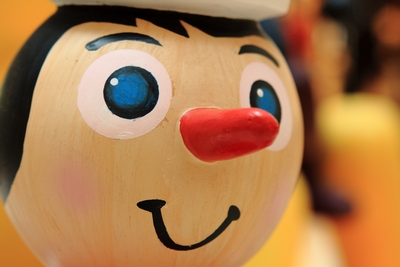Veer Images: keng po leung
Children who are lied to are more likely to lie and cheat themselves. That's the word from researchers at the University of California at San Diego, who studied the effects of being lied to by an adult on a group of children, ages three through seven. They discovered that the children who were lied to by one of the researchers were more likely to lie and cheat themselves.
Lying to kids might seem like a convenient parenting shortcut -- a seemingly harmless way to get kids to do what you want them to do quickly and efficiently, but there are actually some hidden perils. If you think about it, you'll realize that it's actually a highly manipulative behaviour that can damage your relationship with your child (you risk having your child lose trust in you) and that can mess with your child's moral compass (that all-important inner voice that helps your child to figure out for herself what's right and what's wrong).
A better approach (and one that will serve you better over the long run) is to be honest with your child. Sure, you may have to deal with a few more outbursts over the short-run as your child learns to work through his frustration over the issues of the day, but you'll be trading short-term pain for long-term gain. You'll be building up (rather than eroding) your relationship with your child and you'll be helping your child to develop a strong moral compass. Both you and your child will be much better off as a result. And that's no lie.

